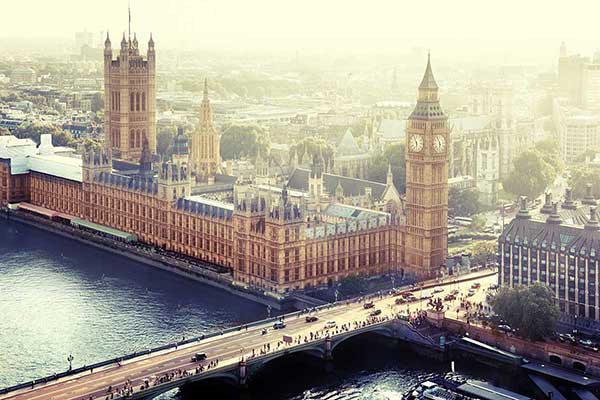- Sponsored content

Explore our planet – develop solutions for a sustainable planet at the University of Plymouth
Geography explores the relationships between people, places and the environment, focusing on contemporary global challenges such as sustainability and climate change. University of Plymouth graduates have careers in government, conservation, environmental consultancy, teaching, aviation, and transport and planning, among others. As a student, you’ll find a supportive environment where lectures are given by research-active academics – many are world leaders in their field. Lecturers use innovative teaching methods to bring geography to life in the classroom, in our state-of-the-art laboratories, and during fieldwork.
Undergraduate degrees:
Geography degrees at the University of Plymouth are accredited by the Royal Geographical Society with the Institute of British Geographers:
- Bachelor of Arts (BA) Geography
- Bachelor of Science (BSc) Geography
- Bachelor of Arts (BA) Geography with International Relations
- Bachelor of Science (BSc) Geography with Ocean Science
- Bachelor of Science (BSc) Environmental Geography
- Bachelor of Science (BSc) Geography with GIS and Data Science
- Bachelor of Science (BSc) Geography with Foundation Year
You can also choose degrees in:
- Ocean Sciences
- Environmental Sciences
Explore your undergraduate options
Geography fieldwork
The University of Plymouth provides a leading fieldwork programme taught by geography academics who are expert researchers in their field. Students gain experience of hands-on research, investigating critical contemporary social and environmental issues in a wide variety of environments.
Year 1: Early in the first year you’ll undertake a range of day trips across Devon, ending with a group dinner in Plymouth after the final day. These field visits explore a range of local topics within human and physical geography. Importantly, they allow you to get to know each other, the geography staff and make new friends early on as you settle into your new degree programme.
Year 2: Put your research methods training in practice on a residential field course to one of a range of exciting destinations around the world. Recent trips have run to Australia, Belize, Borneo, China/Hong Kong, France, Iceland, Ireland, Morocco, Portugal, Sweden, and the United States.
Final year: In your final year, you can join multidisciplinary teams of environmental scientists, environmental chemists, and earth scientists to investigate sustainability issues in a study location overseas and then tackle a core issue through a research project of your own creation.
Life as a student in Plymouth
A large student population, active Students’ Union, and abundance of student-led clubs and societies blend to create a busy and vibrant student scene. Clubs, bars, cafes, and live music, there’s always something going on.
Plymouth’s maritime history and coastal location have an undeniable influence on life in the city. The walk from our main campus to the seafront is only about one mile, providing loads of opportunity to relax and unwind during your studies. You don’t need to leave the city to get to the coast! Plymouth Hoe overlooks several beaches with easy access to the water. Otherwise, just off Royal William Yard, you’ll find Firestone Bay. This official bathing water is a popular spot for swimmers and paddleboarders alike.
Plymouth is one of the cheapest cities in the UK to live as a student, with living costs around 48 per cent cheaper than London and 25 per cent cheaper than Bristol (livingcost.org).
What is it really like to study at the University of Plymouth?
Visit the student blog, where our students share their experiences of study, living in Plymouth and everything in-between.
See the campus and the city for yourself: Open Days
Connect: School of Geography, Earth and Environmental Sciences, University of Plymouth
Admissions enquiry: [email protected]
Instagram: @plymgeog
X: @PlymGeog
YouTube









